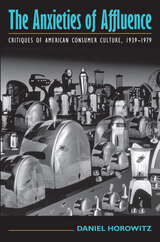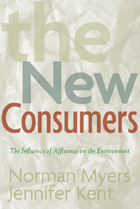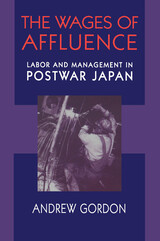


While overconsumption by the developed world's roughly one billion inhabitants is an abiding problem, another one billion increasingly affluent "new consumers" in developing countries will place additional strains on the earth's resources, argue authors Norman Myers and Jennifer Kent in this important new book.
The New Consumers examines the environmental impacts of this increased consumption, with particular focus on two commodities -- cars and meat -- that stand to have the most far-reaching effects. It analyzes consumption patterns in a number of different countries, with special emphasis on China and India (whose surging economies, as well as their large populations, are likely to account for exceptional growth in humanity's ecological footprint), and surveys big-picture issues such as the globalization of economies, consumer goods, and lifestyles. Ultimately, according to the orman Myers and Jennifer Kent, the challenge will be for all of humanity to transition to sustainable levels of consumption, for it is unrealistic to expect "new" consumers not to aspire to be like the "old" ones.
Cogent in its analysis, The New Consumers issues a timely warning of a major and developing environmental trend, and suggests valuable strategies for ameliorating its effects.

Sweden's Development From Poverty to Affluence, 1750–1970 was first published in 1975. Minnesota Archive Editions uses digital technology to make long-unavailable books once again accessible, and are published unaltered from the original University of Minnesota Press editions.
Contemporary Sweden commands a degree of interest and attention from foreigners that is all out of proportion to its small size and its present position among the world powers. The country, at least since the publication of Marquis Childs's book Sweden: The Middle Way in 1936, has become synonymous with the idea of a welfare state or cradle-to-grave social security. But accurate, unbiased information about the development of modern Sweden has been scanty, and this book is designed to fill the gap.
Thirteen Swedish scholars—historians, political scientists, sociologists, and an economist—look at particular aspects of Swedish history over the last two centuries. Steven Koblik, the editor, provides an extensive general introduction as well as brief introductions as background for each of the essays.
Andrew Gordon goes to the core of the Japanese enterprise system, the workplace, and reveals a complex history of contest and confrontation. The Japanese model produced a dynamic economy which owed as much to coercion as to happy consensus. Managerial hegemony was achieved only after a bitter struggle that undermined the democratic potential of postwar society. The book draws on examples across Japanese industry, but focuses in depth on iron and steel. This industry was at the center of the country's economic recovery and high-speed growth, a primary site of corporate managerial strategy and important labor union initiatives.
Beginning with the Occupation reforms and their influence on the workplace, Gordon traces worker activism and protest in the 1950s and '60s, and how they gave way to management victory in the 1960s and '70s. He shows how working people had to compromise institutions of self-determination in pursuit of economic affluence. He illuminates the Japanese system with frequent references to other capitalist nations whose workplaces assumed very different shape, and looks to Japan's future, rebutting hasty predictions that Japanese industrial relations are about to be dramatically transformed in the American free-market image. Gordon argues that it is more likely that Japan will only modestly adjust the status quo that emerged through the turbulent postwar decades he chronicles here.
READERS
Browse our collection.
PUBLISHERS
See BiblioVault's publisher services.
STUDENT SERVICES
Files for college accessibility offices.
UChicago Accessibility Resources
home | accessibility | search | about | contact us
BiblioVault ® 2001 - 2024
The University of Chicago Press









